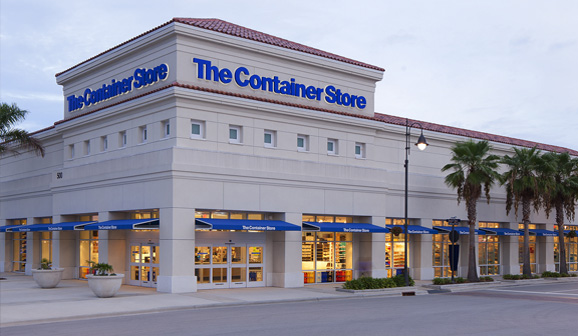At the recent Inc. Iconic event in Los Angeles, Kip Tindell, author of Uncontainable, and CEO of The Container Store shared the philosophy he used to build one of the best companies on earth, and it’s brilliant!
Still have your doubts? Let’s take a look at some staggering metrics to see what makes this place so special.
The Container Store’s average retail employee’s salary is $43,000 a year. Kip Tindell openly admits that while that isn’t a great deal of money, it topples the industry average of approximately $27,000.
He also states that during an employee’s first year, they will receive 283 hours (that’s more than five weeks, or 35 full eight-hour days) of formal training compared to the industry average of only eight hours.
The pay and the training are expensive line items for The Container Store, but they’re more than willing to continue considering a startlingly low 10% retail employee turnover rate year after year. Meaning 90% of the 6,000 employees at The Container Store choose to stay each year. The standard in retail is 100% turn over.
So how does he do it? Let’s see. 1 = 3
Tindell swears that his secret sauce lies in that formula. Let’s break it down.
He says, “One great employee is equal to three good ones,” offering metrics to back up this claim, and he hires only the “great ones”.
Productivity vs. Pay
Assuming that one great employee is only three times as productive as any good employee, he actually is only paying 53% full capacity.
In thousands, $27*3=$81; $47/81=53%
“I save money by hiring great people and paying them well.”
Seeing the Vision and Getting Customers to Dance
“We don’t sell empty boxes. We sell organization. We sell the time you get back when you’re organized.” Tindell spends a substantial portion of those 283 hours making sure his team understands this principle. He said, “(When you) provide solutions, rather than items, to the customers organization problems…(you) fully solve their problem. That’s how you get the customer to dance.”
Synergy Creates Money
“The businesses that make the most money create as much synergy for their stakeholders as possible.”
Tindell believes that by supporting and loving his stake holders, he has been able to build a successful business. To this point, he highlights how a vender built a factory next to The Container Store’s main distribution facility in order to create a shared 17% margin.
“That’s what vendors do when you love them,” he asserts.
Tindell also shared candidly, “You want to create a workplace that allows for use of intuition, not just logic…But you screw up a lot more when you use intuition. So we ask, are we good enough of leaders to allow others to feel safe using their intuition at work?”
Their success would support that they are more than good enough.
It’s Not Altruism
As lovey as it all sounds, Tindell is staunchly a capitalist.
He identified his business focus as conscious capitalism, not quarterly capitalism.
He clarified, “It’s Conscious Capitalism. It’s not altruism. It’s a profit strategy… I don’t believe in paying mediocre people well… The 1=3 thing is key.”
Takeaways:
- A comprehensive employee training program may seem expensive but it can reap great long-term dividends.
- 1=3. One great employee is equal to three good or average ones
- Pay great employees well – in the long run it’s better for your business than paying an average salary for an average job.
- Sell solutions – not items. Solve customers problems.
- Treat your vendors like partners in your business – not simply suppliers of products.

